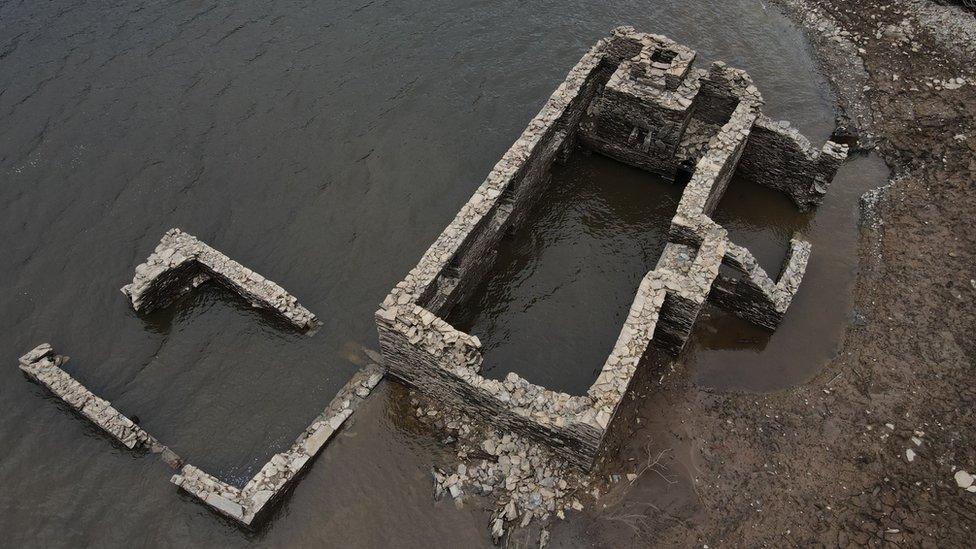Climate change: Welsh river temperature increases by 1C
- Published
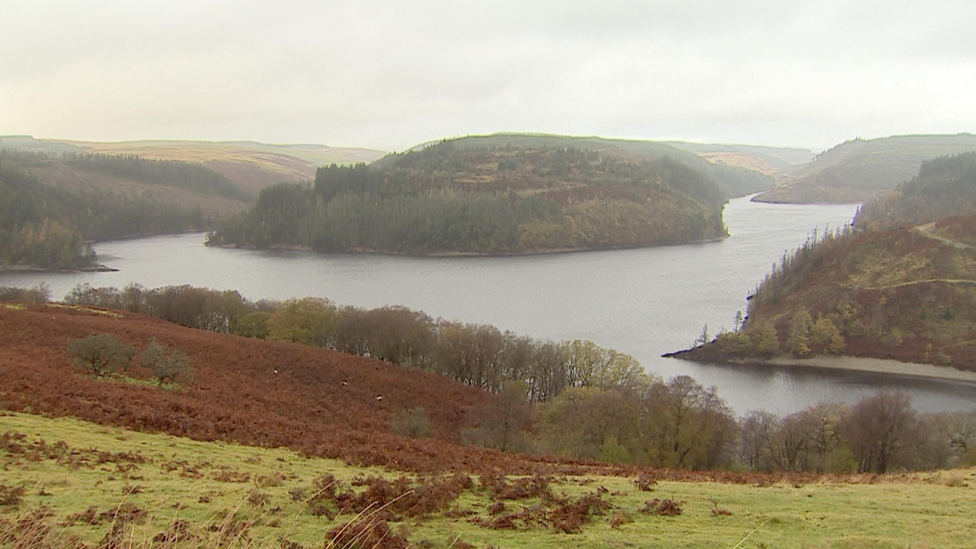
Llyn Brianne is a reservoir in the headwaters of the River Towy
A project observing the climate change impact on streams and rivers in Wales has seen its average temperature rise 1C (1.8F) in the past 40 years.
The Llyn Brianne Observatory has been collecting data for four decades on the streams around the River Tywi that flow into the Carmarthenshire reservoir.
Husband and wife Prof Steve Ormerod and Prof Isabelle Durance run the study.
He said they were "pretty sure" the climate change effect has led to a year-on-year fall in insect numbers.
Prof Ormerod said: "The predecessor of Natural Resources Wales started to monitor these streams back in the early 80s to look at what was then the problem of acid rain.
"As the project evolved, we realised there were other issues, and we started to see signals of climate change effects."
Climate change has been near the top of the news agenda during COP27 in Egypt.
The climate change conference closed with almost 200 countries striking a landmark deal to launch a fund to help nations worst affected by climate change.
Prof Ormerod explained: "In winter, the warming is even more than 1C, up to about 1.5C (2.7F).
"What we've seen on the back of that is quite a substantial change in the number of insects and invertebrates that live in these streams.
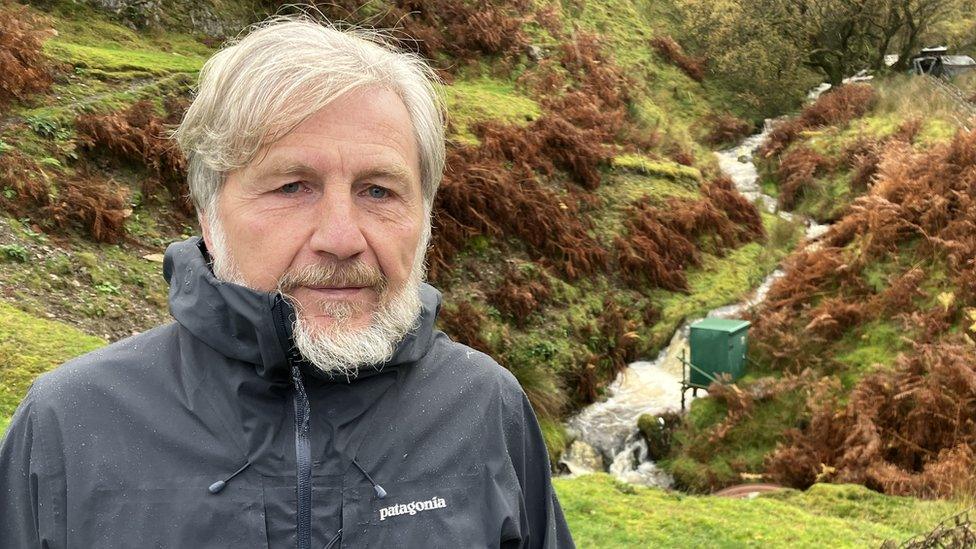
Prof Steve Ormerod carried out the study with his wife Isabelle Durance
"When we first noticed this phenomenon, the numbers of insects were dropping by about a fifth for every one degree centigrade rise in temperature. That has slowed a little bit, but in all of the streams here, there is a year-on-year reduction in the numbers of insects, which we're pretty sure is linked to a climate change effect."
The 14 streams that are monitored in the Cardiff University-run study were chosen because they flow through different landscapes - some through pine forests, others through broadleaf woodland and some through open pastures, grazed by sheep.
'Major human issue'
Professor Ormerod said the effect of climate change seen near Llyn Brianne is replicated elsewhere in Wales and it is a microcosm of the effect on nature globally.
He said: "Climate change is a major human issue that will force very large numbers of people to have to move location as environmental refugees.
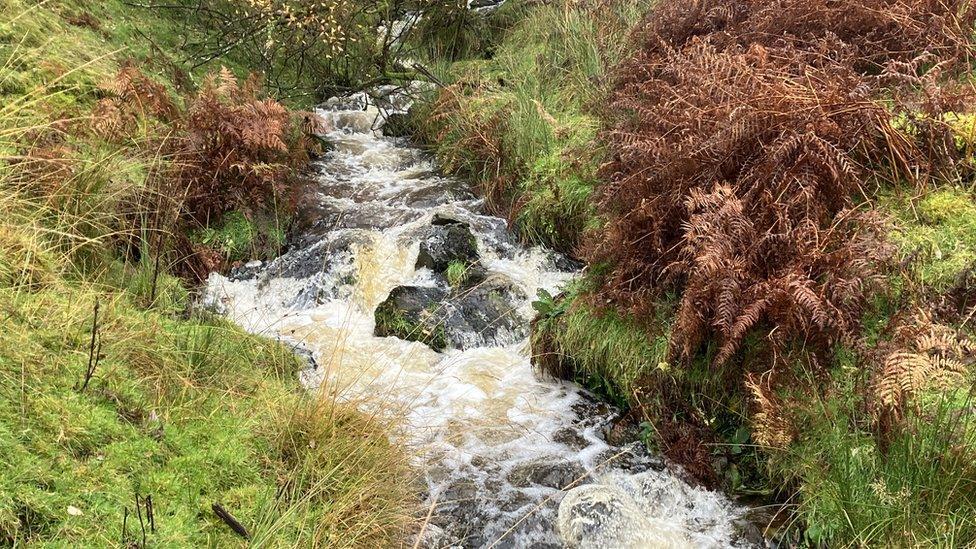
One of the 14 streams that flow into the river
"But what our data and those around the world illustrate is that it's a very significant problem for nature. Some data suggests up to about a third of the world's extinctions could be linked to climate change effects."
Natural Resources Wales (NRW) said warmer waters threaten the sustainability of Atlantic salmon in Welsh rivers.
Nick Thomas, NRW operations manager, said: "We are really concerned about the decline of Atlantic salmon. If temperatures during the winter get up to 10C in these streams, their breeding success is very low.
"It's part of the reason why the Atlantic salmon is declining."
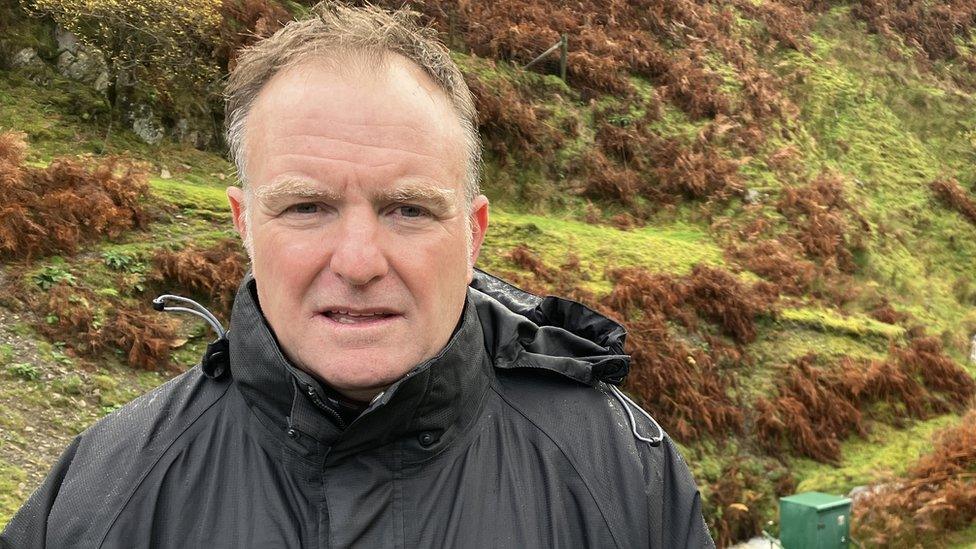
"There are so many species at the moment being affected by a whole host of factors, but climate change is on top of that as well"
The River Tywi is one which NRW aims to improve through a £9m scheme, the 4 Rivers for Life project, which will also enhance the Teifi, Cleddau and Usk.
The five-year project has been funded by the European Union, Welsh government and Welsh Water, and aims to improve habitats and reduce flood risks.
'Responsibility to future generations'
Some 50,000 broadleaf trees will be planted near the rivers, to improve habitats as well as to provide shade during hotter summers.
The commitment to limit global warming to 1.5C above pre-industrial levels was maintained at COP27 although some fear it is too late to avert the worst effects of climate change.
Prof Ormerod said action to reduce and absorb emissions must increase.
"Many of us who work in the environmental sphere alternate between despair about how bad things can get, but we've also got to continue to hope there are decisions we can take, there are actions we can take.
"Essentially we have a responsibility to future generations and what they may be left with if we take the wrong decisions now," he said.

WHAT'S KILLING OUR RIVERS?: Wyre Davies investigates what and who is to blame
BAFTA CYMRU WINNERS: Celebrate the best television from Wales

- Published11 August 2018
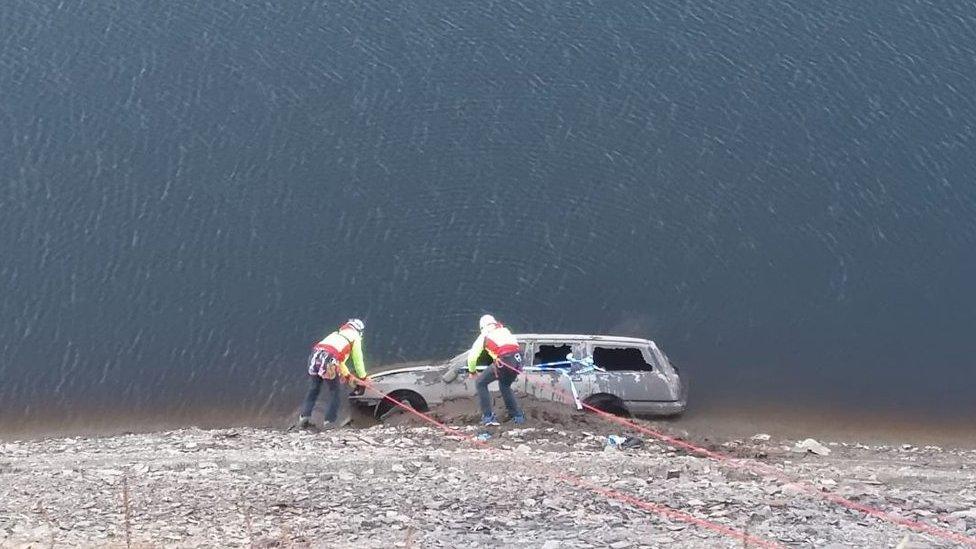
- Published10 July 2018
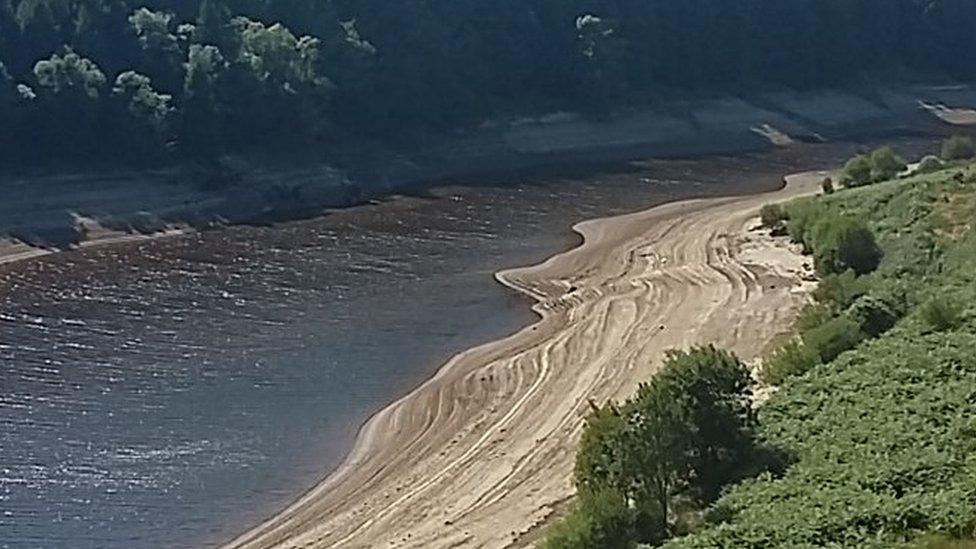
- Published6 September 2022
